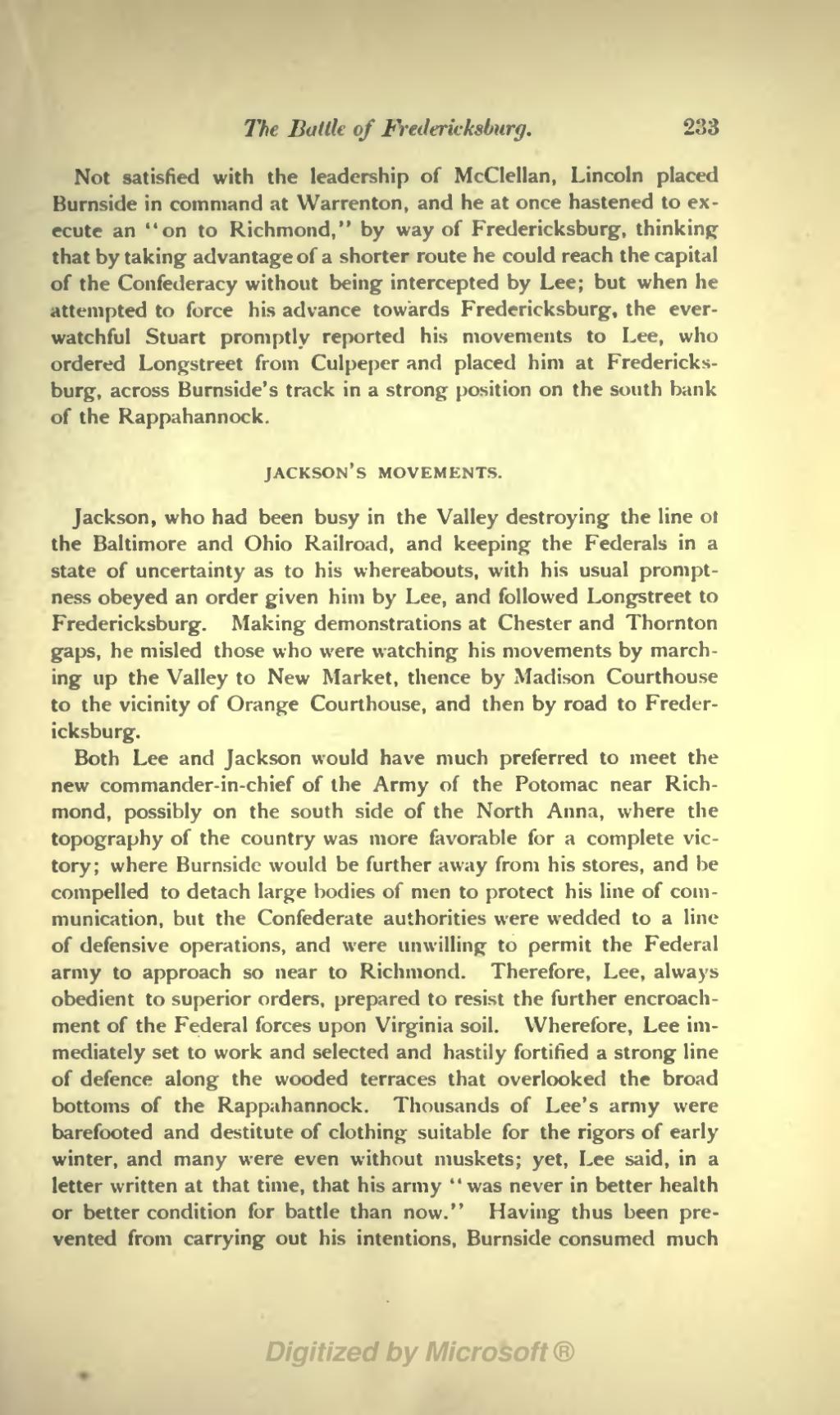The Battle o Jtaferfefefco.
Not satisfied with the leadership of" McClellan, Lincoln pl;ul Burnside in command at Warrenton, and he at once hastened to ex- ecute an "on to Richmond," by way of Fredericksburg, thinking that by taking advantage of a shorter route he could reach the capital of the Confederacy without being intercepted by Lee; but when he attempted to force his advance towards Fredericksburg, the ever- watchful Stuart promptly reported his movements to Lee, who ordered Longstreet from Culpeper and placed him at Fredericks- burg, across Burnside's track in a strong position on the south bank of the Rappahannock.
JACKSON'S MOVEMENTS.
Jackson, who had been busy in the Valley destroying the line ol the Baltimore and Ohio Railroad, and keeping the Federals in a state of uncertainty as to his whereabouts, with his usual prompt- ness obeyed an order given him by Lee, and followed Longstreet to Fredericksburg. Making demonstrations at Chester and Thornton gaps, he misled those who were watching his movements by march- ing up the Valley to New Market, thence by Madison Courthouse to the vicinity of Orange Courthouse, and then by road to Freder- icksburg.
Both Lee and Jackson would have much preferred to meet the new commander-in-chief of the Army of the Potomac near Rich- mond, possibly on the south side of the North Anna, where the topography of the country was more favorable for a complete vic- tory; where Burnside would be further away from his stores, and be compelled to detach large bodies of men to protect his line of com- munication, but the Confederate authorities were wedded to a line of defensive operations, and were unwilling to permit the Federal army to approach so near to Richmond. Therefore, Lee, always obedient to superior orders, prepared to resist the further encroach- ment of the Federal forces upon Virginia soil. Wherefore, Lee im- mediately set to work and selected and hastily fortified a strong line of defence along the wooded terraces that overlooked the broad bottoms of the Rappahannock. Thousands of Lee's army were barefooted and destitute of clothing suitable for the rigors of early winter, and many were even without muskets; yet, Lee said, in a letter written at that time, that his army " was never in better health or better condition for battle than now." Having thus been pre- vented from carrying out his intentions, Burnside consumed much
